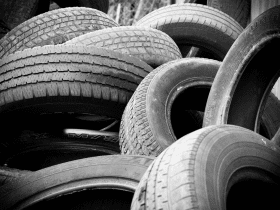The strangest thing about cars is how much we love them the day we buy them compared to how much we’re glad to see the back of them the day we upgrade. Just like anything in life, cars come and go. What’s important to remember is that a well looked after car is infinitely more likely to sell for as close to the expected price when factoring in the car’s age. This means that we must all learn to develop the foresight that our cars will not be with us forever, and that right from day one of our ownership of a particular set of wheels, we need to make sure that care is taken to maintain the vehicle (if you’ve had a crash that has affected your resale value in Fort Worth, click the link). If you fail to do all you can to keep your car in a saleable condition, you will pay the ultimate price in terms of a reduced sales value. With that in mind, let’s look at things that may affect the value of your car.
The age of your car
How can you help the age of your car, you ask? Well, quite clearly, you can’t. This leaves us with two considerations. The first is that any relatively new model should be swapped as soon as is sensibly possible – this doesn’t mean changing car every three to four weeks, but you should be aware that keeping hold of a four year old car for much longer than a year or two will mean the eventual resale value will be very low. The other consideration is that older cars may in fact gain in value, depending on the make and model. Old cars do not necessarily have to be deemed ‘classic cars’ to make you money – a well looked after 20-or-30-year-old car will always find a buyer, simply due to rarity value. In either case of dealing with older or newer cars, maintenance is key to resale value.
Mileage
Unless you’re a collector of fine vehicles, the chances of you buying a car to let it sit inside your garage with no intention of driving it are slim. This means that mileage is going to be an issue regarding resale value. If you are planning to sell the vehicle within the next one to two years, consider taking measures to ensure that the car is only used for the purpose for which it was bought – which in all likelihood is going to be for commuting.
Maintain a service history
If you are familiar with buying cars, you’ll know the value of a full service history. You’ll know this, because full service histories are not always guaranteed, and you’ll remember being drawn to buying vehicles that come with a full log of service. Even a partial service history kept by you can increase the resale value of your car – if you’re looking to buy a car without a service history, make sure to keep an up to date log from the date of purchase.







